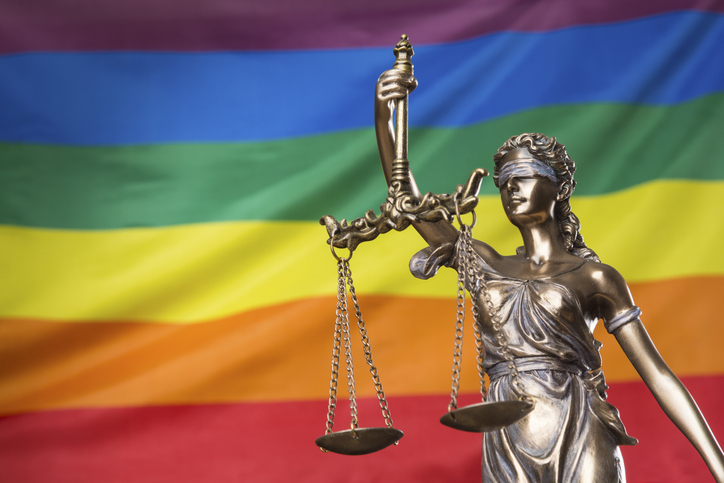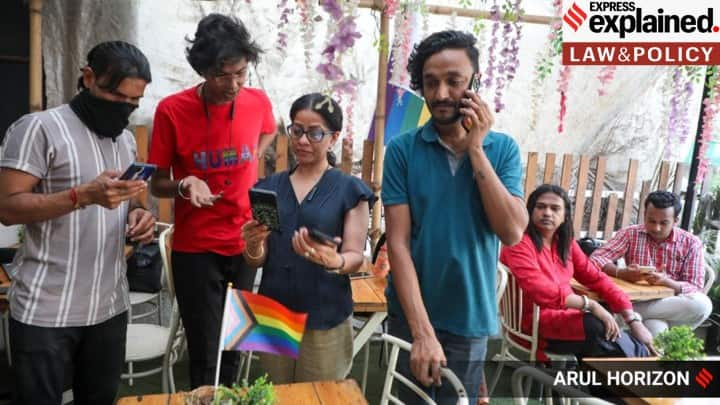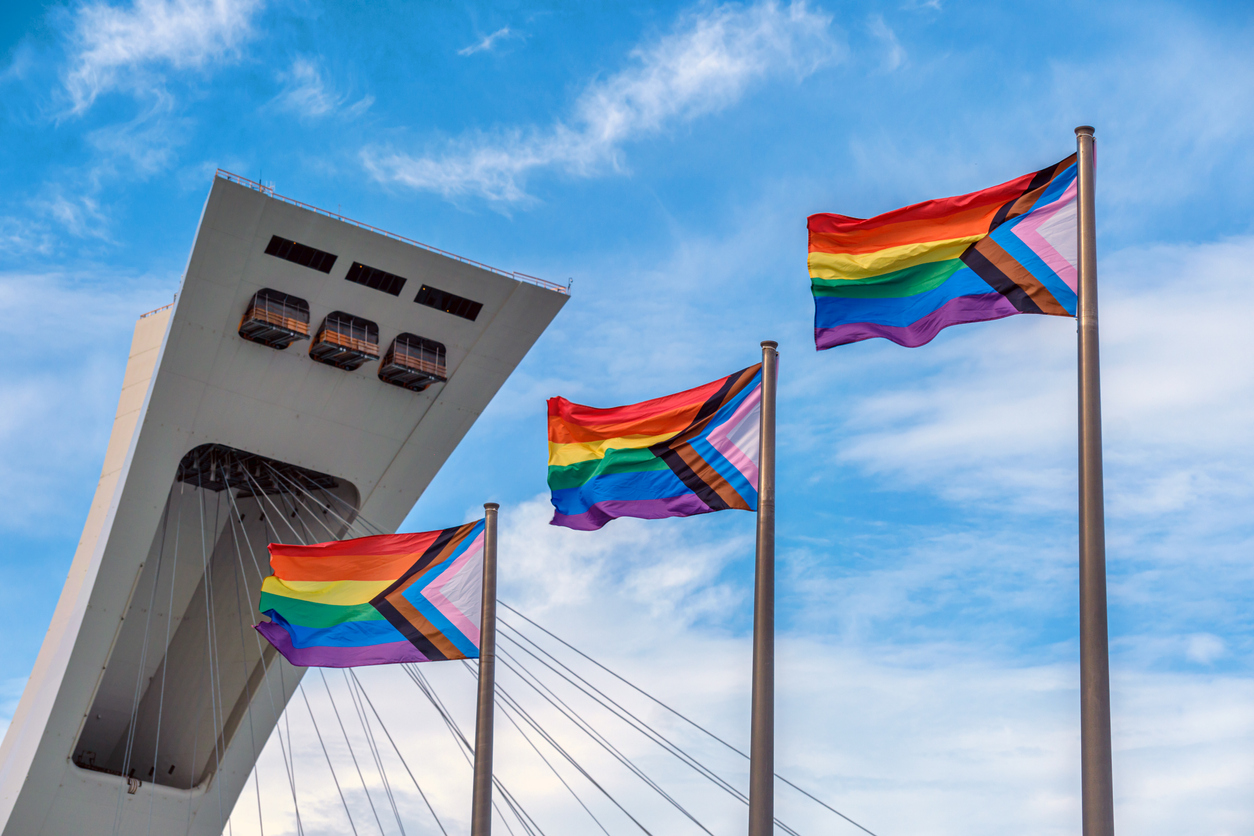
Same-Sex Marriage: A Test of India’s Constitutional Values
Constitutional morality and the fundamental guarantees of life, liberty, privacy and autonomy.
The Challenge to Majoritarian Norms: The Navtej Johar Case
When the Supreme Court of India was deliberating on reading down the Indian Penal Code (IPC) 377, insofar as it criminalised non-commercial, private, consensual, and adult same-sex conduct in Navtej Johar v Union of India (2018), counsel for the interveners in the case (an NGO called Trust God Ministries) submitted that “if Section 377 is declared unconstitutional, then the family system which is the bulwark of social culture will be in shambles, the institution of marriage will be detrimentally affected and rampant homosexual activities for money would tempt and corrupt young Indians into this trade.”
While most of this can be safely set aside as conjecture, what the NGO accurately predicted was that gay rights activists would use the win in Navtej to challenge the existing cisnormative and heteronormative institution of the Indian family. Two years after Navtej, advocates Menaka Guruswamy and Arundhati Katju delivered a powerful speech on LGBTQ+ rights at the Oxford Union, when they unveiled the ‘Marriage Project’ – an endeavor to legalise same-sex marriage in India. The social aspect of this project alluded to India being a “marriage country” where Katju and Guruswamy noted that young Indians, gay or straight, Hindu or Muslim, upper caste or lower caste, male or female, “all wanted the same thing” – a lasting long-term relationship recognised by society and by the law. Additionally, the legal aspect of the project would focus on how, because marital arrangements centred around a bundle of rights (adoption, inheritance, insurance, etc.), there should be no reason why same-sex couples be denied these rights while their heterosexual counterparts unquestionably enjoy them.
Legal Recognition of Same-Sex Marriage in India: Current Status
Fast forward to March 2023, and close to half a dozen petitions have made their way to the High Courts of Delhi and Kerala, seeking to recognise the rights of same-sex couples under various existing laws – the Special Marriage Act, Hindu Marriage Act, Citizenship Act, and the Foreign Marriage Act.
All these cases were eventually transferred to the Supreme Court, and on Monday, March 13, the top court announced that a five-judge bench will start hearing final arguments over granting legal recognition to same-sex marriages on April 18, proceedings of which will be live-streamed on its website and Youtube.
The Union Government’s Opposition to Same-Sex Marriage
On Sunday March 12, legal counsel to the Narendra Modi-led Bharatiya Janata Party (BJP) submitted a detailed counter affidavit in the matter of Supriyo @ Supriya Chakraborthy v. Union Of India & Anr. In it, they urged the top court to leave the matter to the legislature, while also stating that a legitimate state interest lay in limiting the legal recognition of marriage to persons of opposite sexes only (indirectly stating that the BJP, which currently holds an overwhelming majority in Parliament, would not support legalising same-sex marriage even if it made its way to the legislature). Counsel for the government also highlighted that denying same-sex couples the right to marry was not violative of Article 14 because of the existence of an intelligible differentia between heterosexual couples and same-sex couples and a rational relation with the object sought to be achieved by the law (the object being “social stability in marriages”)- what the government failed to address is how legalising same-sex marriage would cause social instability in marriages. Moreover, the test of intelligible differentia would also fail in cases of bisexuality- where one’s sexual orientation allows one to choose partners of either the same sex or the opposite sex. Sexuality being innate, it would be difficult, almost impossible, for any rational person to determine the individual’s sexual orientation without actually knowing they are bisexual.
They also claimed that while Navtej upheld the privacy rights of gay individuals, it did not necessarily include the “public right” to marriage- but at no point do they explain why marriage must lie exclusively in the public domain and why the rest of Navtej, which extensively highlighted the sheer volume of discrimination faced by LGBTQ+ people, cannot be applied to grant same-sex couples equal rights to marry as a way of fraying away social discrimination and bringing gay and lesbian people into the mainstream.
All in all, the union Government’s case is weak. To argue that legalising same-sex marriage would cause “complete havoc with the delicate balance of personal laws in the country and in accepted societal values” is at best, an inept basis to deny an entire class of Indian citizens from civil rights purely on the basis of who they are.
A World Divided on LGBTQ+ Issues: The Way Forward For India
While public awareness about LGBTQ+ issues may be on the rise, jurisdictions around the world are taking startlingly different stances on the issue. For example, Uganda’s parliament passed a law on March 22 which made it a crime to simply identify as LGBTQ+. The law also handed authorities broad powers to target gay Ugandans. Violations under the law draw severe penalties, including death for so-called “aggravated homosexuality” and life imprisonment for gay sex. In Italy, the far-right government led by the country’s first female prime minister, Giorgia Meloni forced Milan to limit the rights of same-sex parents seeking to register their children in the city. Such registrations are required for parents for purposes such as authorising medical treatment for their children. “Yes to natural families, no to the LGBT lobby, yes to sexual identity, no to gender ideology, yes to the culture of life, no to the abyss of death.” said Meloni last year in June. Meanwhile, Cuba and Slovenia both scripted history in 2022 by being the first communist country and post-communist country to legalise same-sex marriage.
In the Asia Pacific region, progress is slow, but it is encouraging to see Taiwan and Thailand move towards greater acceptance. In the midst of all this, it is truly unclear which direction India will go. Pew survey data from 2019 shows that while social acceptance of homosexuality has risen over the years, it is still quite low- which somewhat explains the BJP’s hardline negative position on same-sex marriage. The BJP’s core ideology is rooted in Hindu majoritarianism and social conservatism. Since its ascendance in 2014, BJP, under Narendra Modi has not only appealed to devout Hindus but also brought in new voters into its core base- such as Dalits, Scheduled Tribes(STs), members of the Other Backward Classes (OBC) community, new and upwardly-mobile people in the lower-middle class and the middle class. Therefore, it is not surprising that the BJP’s voters would be irked by a socially progressive move such as same-sex marriage, and as a result, the party has taken an adverse stance on the issue.
As the five-judge bench of the Supreme Court begins hearing the matter in April, one hopes that the Court remembers ex-Chief Justice of India, Dipak Misra’s sagacious words in his concurring opinion in Navtej: “even if there is disapproval by the majority of the sexual orientation or exercise of choice by the LGBT persons, the Court as the final arbiter of the constitutional rights, should disregard social morality and uphold and protect constitutional morality which has been adverted to by this Court in several cases.” Indeed, constitutional morality and the fundamental guarantees of life, liberty, privacy, and autonomy should prevail and extend to all persons, irrespective of gender identity and sexual orientation. India must legalise same-sex marriage and pave the way for the legal recognition of other queer marriages as well.



